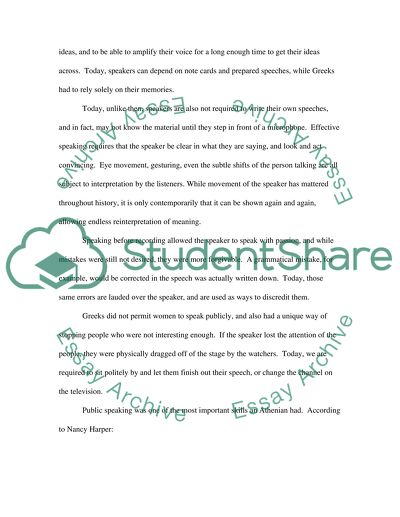Cite this document
(“Changes in Public Speaking from Ancient Greece to Modernity Research Paper”, n.d.)
Changes in Public Speaking from Ancient Greece to Modernity Research Paper. Retrieved from https://studentshare.org/history/1524241-public-speaking-essay
Changes in Public Speaking from Ancient Greece to Modernity Research Paper. Retrieved from https://studentshare.org/history/1524241-public-speaking-essay
(Changes in Public Speaking from Ancient Greece to Modernity Research Paper)
Changes in Public Speaking from Ancient Greece to Modernity Research Paper. https://studentshare.org/history/1524241-public-speaking-essay.
Changes in Public Speaking from Ancient Greece to Modernity Research Paper. https://studentshare.org/history/1524241-public-speaking-essay.
“Changes in Public Speaking from Ancient Greece to Modernity Research Paper”, n.d. https://studentshare.org/history/1524241-public-speaking-essay.


